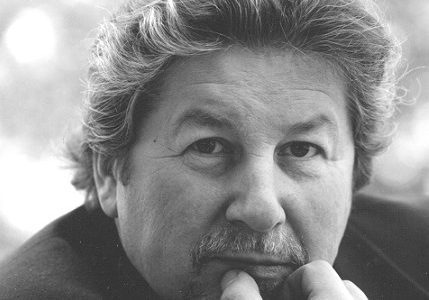How does one became a creator of music? And will there ever be a good answer to this question? Everyone studies under the same teachers, learns the same things, hears the same music playing around them, and so canons are born which lodge deeply in our minds and from which everyone draws. But all of our destinies are different: one person who is accustomed to being guided by mentors becomes unable to disentangle himself from these canons and continues on exclusively in that which he has learned and knows, while another, eager to show his courage, tramples upon everything which was sacred to the generation of his teachers, that which he was taught. And only a very few take to speaking in their own voice, unconcerned whether this conforms to fashion or if there is a demand for it, unconcerned if this clashes with the truths and rules invented by someone else.
Anatolijus Šenderovas was one of those few who travel off on their own path. He was free to accomplish the goals he set for himself without trying to prove himself to anyone, he created that which he felt he must create. He immortalized in his work his experience and that which he held dear. Perhaps that’s why his music is so recognizable and why it cannot be confused with anyone else’s.
Šendrovas’s work clearly expressed Jewish cultural narratives: the unbreakable chain between past and present, a tragic history, faith in destiny. These were things close to his heart and they inspired him. Nonetheless, in providing a clearly ethnic subtext to his music, he did not choose the facile path by simply quoting or imitating someone. He gave birth to his own unique vision of Litvak musical style which did not exist hitherto but which he created for himself and others. Just as Grigoriy Kanovich placed his imaginary characters in the environments of shtetls which no longer existed and created Litvak phenotypes which became completely real to us, seamlessly merging with our conception of the life of our forefathers, so was Šendrovas’s music heard by us in ethnic colors, from now on adorning the concept of Jewish musical expression. And this is exactly the miracle of art, when the artist’s fantasy becomes real.
Šenderovas earned the respect of his colleagues and the love of his audience as well as great renown. The cello was his creative Muse not only because his father was an outstanding cellist, but also due to his friendship with David Gering, a fellow thinker and promoter of his work. Premieres of his work were conducted by Saulius Sondeckis and Juozas Domarkas, and a mutual understanding, sincere friendship and a creative partnership connected him to them throughout life. He was equally as open and friendly with many other performers of his work, whose ranks were constantly renewed by new names, by representatives of newer generations, one after another. He always found a common language, a common set of values with them.
Music has this wonderful quality, the ability to be born anew every time. Šenderovas’s music has been played, is being played and will be played without interruption in the future. In that sense the composer himself will remain with us and he will communicate with us through his music. We are forever grateful to him for this gift he has bestowed upon us.
Professor Dr. Leonidas Melnikas, pianist, organist, musicologist
March 27, 2019


